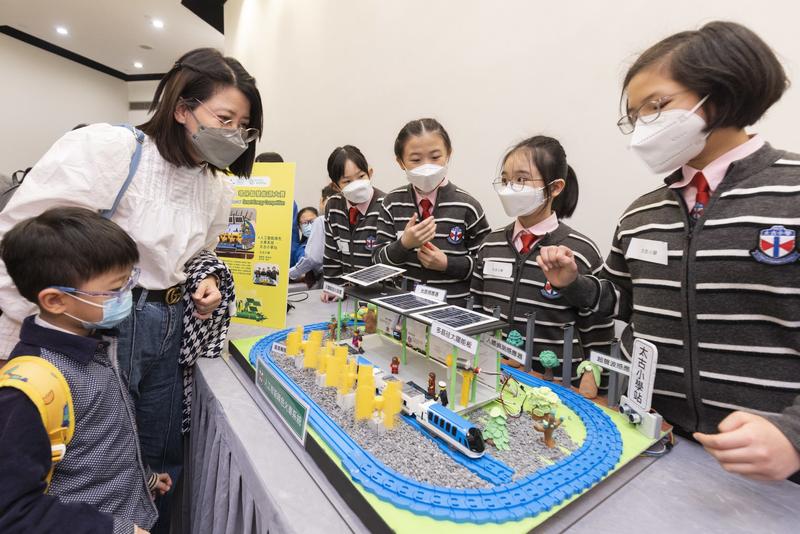 The winning team of the Primary School Division from Tai Koo Primary School introduces their project, “The Artificial Intelligence Green Railway System”. (PHOTO PROVIDED TO CHINA DAILY)
The winning team of the Primary School Division from Tai Koo Primary School introduces their project, “The Artificial Intelligence Green Railway System”. (PHOTO PROVIDED TO CHINA DAILY)
Climate change poses one of the greatest existential threats to humankind, and it will take generations of effort to fight it. To raise awareness of climate change and encourage students to come up with innovative smart energy solutions to tackle this issue with their STEAM (science, technology, engineering, arts and mathematics) knowledge and hands-on skills, the Hong Kong and China Gas Co Ltd (Towngas) and Hong Kong Education City (EdCity) joined hands to organize the “Green Flame Project — Smart Energy Competition”, paving the way for a low-carbon lifestyle in the long term.
With 139 entries from 66 primary and secondary schools participating, the competition received an overwhelming response. Contesting teams went through over seven months of preparation, refining their ideas through seminars, workshops and mentoring sessions. Towngas engineers were paired with teams to provide students with valuable guidance and feedback, adding dynamics to the learning process. After a rigorous selection process by a panel of judges that comprised experts in the field, the teams from Ying Wa College and Tai Koo Primary School were crowned champions in their respective divisions at the recent award-presentation ceremony, each winning a scholarship of HK$100,000 ($12,740).
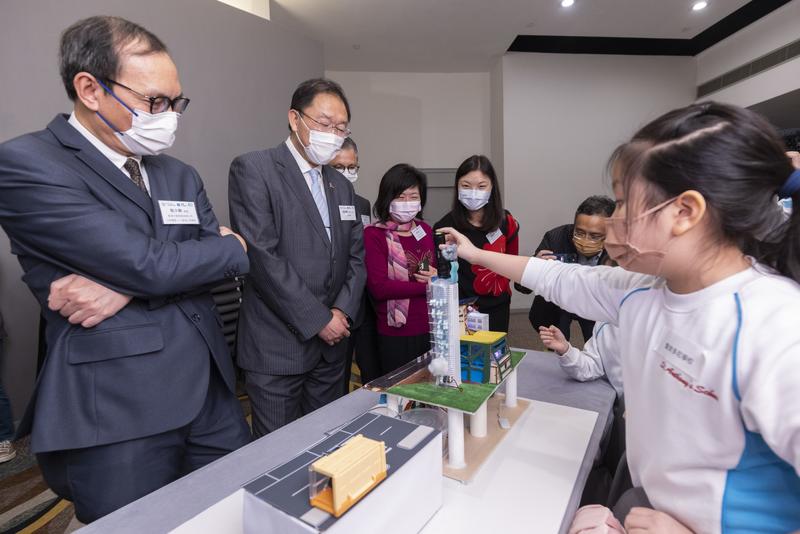 Head of Engineering — Hong Kong Utility of Towngas Simon Ngo Siu-hing (left) and Legislative Council member Professor William Wong Kam-fai (second from left) watch a finalist team demonstrate their project. (PHOTO PROVIDED TO CHINA DAILY)
Head of Engineering — Hong Kong Utility of Towngas Simon Ngo Siu-hing (left) and Legislative Council member Professor William Wong Kam-fai (second from left) watch a finalist team demonstrate their project. (PHOTO PROVIDED TO CHINA DAILY)
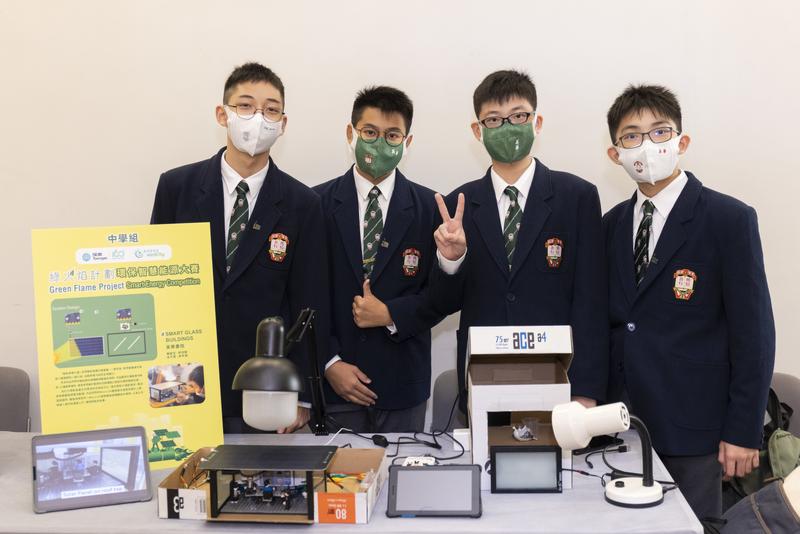 Aiming at cutting carbon emissions, the Ying Wa College team came in first in the Secondary School Divison with their “Smart Glass Buildings” project. (PHOTO PROVIDED TO CHINA DAILY)
Aiming at cutting carbon emissions, the Ying Wa College team came in first in the Secondary School Divison with their “Smart Glass Buildings” project. (PHOTO PROVIDED TO CHINA DAILY)
At the ceremony, Simon Ngo Siu-hing, Head of Engineering — Hong Kong Utility of Towngas, said, “We hope the competition can serve as a platform for students to translate their excellent ideas into practical action. Inspirations come from our everyday life, and they can be applied extensively with a little refinement.” He also expressed his wish for students to continue to pay more attention to the people and events in their everyday lives, and to use their creative imaginations and technological wisdom to create more innovative energy solutions to promote sustainable development.
Legislative Council member Professor William Wong Kam-fai also attended the ceremony as the guest of honor. In his remarks, he said that one key aspect of “Chinese-style modernization”, as mentioned by President Xi Jinping, is to emphasise the harmony between man and nature, and emission reduction is key to rebuilding the order between them. Promoting green energy contributes to the realization of “Chinese-style modernization”, making this competition even more significant.
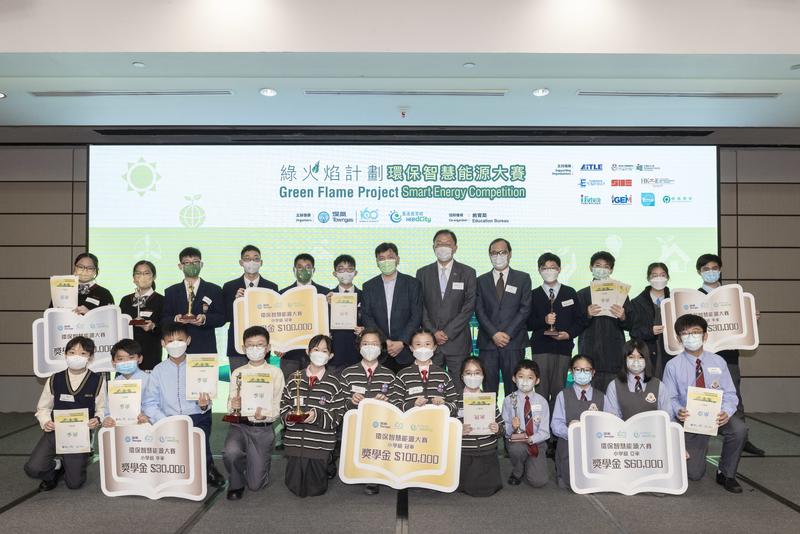 The champions, first runners-up and second runners-up from both divisions show their certificates and scholarships at the awards presentation ceremony. (PHOTO PROVIDED TO CHINA DAILY)
The champions, first runners-up and second runners-up from both divisions show their certificates and scholarships at the awards presentation ceremony. (PHOTO PROVIDED TO CHINA DAILY)
The top entry of the Secondary School Division was the brainchild of four form-two students from Ying Wa College. Titled “Smart Glass Buildings”, the project made use of smart dimming glass, instead of traditional curtains, to regulate indoor temperature and control the amount of light entering the room. The project not only saves energy, but also reduces the use of plastic and the amount of carbon dioxide emitted during the production of curtains.
“The biggest challenge we faced was to come up with a project idea, and it needed to be practical so that people could find it relatable in their daily life,” the Ying Wa team recalled. “We took inspiration from our homes, and our school and wanted to find a way to control the room temperature in an energy-saving way. Through trial and error and our teacher’s support, we obtained the required data to make this project happen.” The team members also mentioned that they look forward to working on other smart energy solutions, accommodating varying energy needs in different communities.
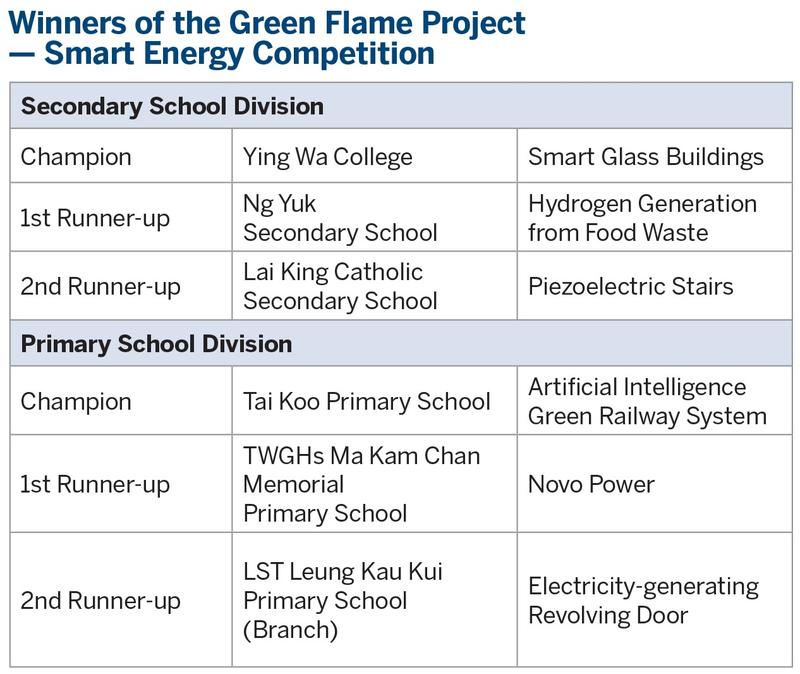
The Primary School Division title went to four primary-five students from Tai Koo Primary School. Their winning entry, “The Artificial Intelligence Green Railway System”, outlined their vision for a smart city. In their project, they integrated solar and wind energy into their train-station design, reducing the reliance on fossil fuels for power generation. They also utilized artificial intelligence in their sensors to achieve better energy efficiency. This comprehensive energy solution was finished with an extra touch of greenery around the station, further facilitating energy saving and carbon reduction.
“The biggest takeaway for us in the competition was to learn about the importance of teamwork. The wire connection was particularly difficult for us while working on the model. Given the scale of the project, it would not be possible without the cooperation and input from each team member,” the Tai Koo Primary School winning team said. “We would also like to thank Towngas for organizing this competition, allowing us to practice what we learned.”


